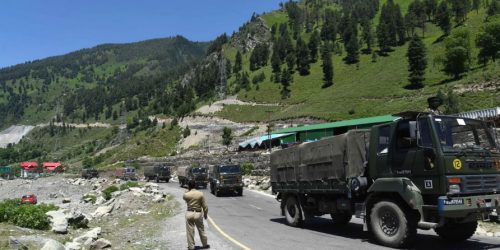When Indian and Chinese troops started throwing rocks at each other in a fatal skirmish in the Galwan Valley earlier this month, the incident appeared to be yet another outbreak in hostilities over an ill-defined Himalayan border between the two countries.
Tensions between China and India over the border go back decades and erupted into war in 1962.
But observers say that this time the main driver of the conflict was not the line dividing the two players but wider strategic interests involving a third country – China’s “iron brother” Pakistan.
The latest border dispute between the two Asian giants took place just a few hundred kilometres from the Line of Control that separates Pakistan-administered territories Azad Kashmir and Gilgit-Baltistan from Indian-administered territories Jammu and Kashmir and Ladakh, all of which are part of the larger region known as “Kashmir”.
Both sides have claimed Kashmir as their own since the Partition in 1947 that split British-ruled India into Pakistan and India.
But in August last year, the Indian government revoked Article 370 of the constitution that granted Jammu and Kashmir significant autonomy, placing it under the direct rule of New Delhi. The move was to assert Indian control over Indian-administered Kashmir, an area that Pakistan claims India occupies unlawfully. The revocation prompted swift condemnation from Islamabad, which has supported separatist calls in the area.
The term “Kashmir” also historically refers to an area known as Aksai Chin, part of China’s Xinjiang and Tibet autonomous provinces.
China condemned India’s decision to change the status of Jammu and Kashmir because it also included the western India-China border in Ladakh.
“India has continued to undermine China’s territorial sovereignty by unilaterally changing its domestic law. Such practice is unacceptable and will not come into force,” Chinese foreign ministry spokeswoman Hua Chunying said at the time.
Analysts said that China was angered by India’s revocation of Article 370 because it asserted India’s formal rights to the entire disputed region.
“By integrating all of Jammu and Kashmir into the Indian Union it undercut the legal case the Chinese have on Aksai Chin because Aksai Chin is part of the old princely state of Jammu and Kashmir,” said Sumit Ganguly, a professor of political science at Indiana University in the United States.
Claude Rakisits, honorary associate professor at the Australian National University in Canberra, agreed, saying that India’s actions in Kashmir were the catalyst of the present conflict in the Galwan Valley.
“The message President Xi [Jinping] has sent Prime Minister [Narendra] Modi is clear: beating up on Pakistan is one thing, picking a fight with China is quite another,” he said.





